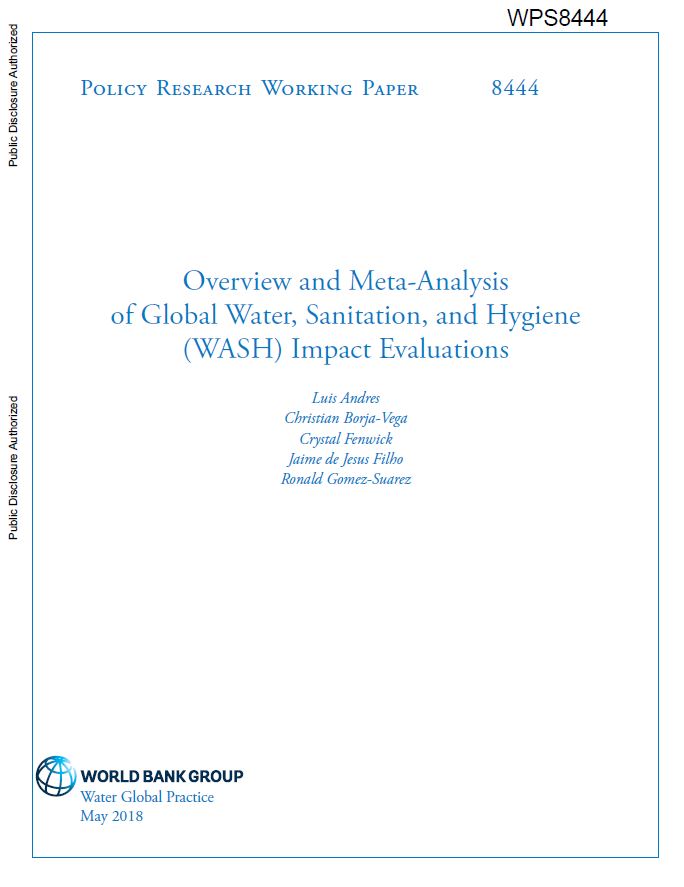Overview and meta-analysis of global water, sanitation, and hygiene (WASH) impact evaluations
 |
rapport coll. Policy Research Working Paper May 2018 ; 42 pages
Aut. Jaime De Jesus Filho & Crystal Fenwick & Ronald Gomez‐Suarez & Luis Alberto Andrés & Christian Borja-Vega
Ed. World Bank - Washington
Téléchargeable sous format: PdF
Téléchargeable chez l'éditeur
Page de présentation d'un éditeur
Abstract:
This paper presents an overview and meta-analysis of the effects of water, sanitation, and hygiene interventions around the world. It is based on 136 impact evaluations (randomized and quasi-experimental studies) that explore the effects of water, sanitation, and hygiene interventions on health and non-health outcomes, ranging from behavior change -- such as the adoption of water treatment -- to school attendance rates, to a reduction in diarrhea. The selected impact evaluations were divided into five groups, and meta-regressions with fixed effects (at the regional level) and random effects were performed, controlling for each study's characteristics (implementing organization, sample sizes, type of publication, number of publication views, and so forth). All results are reported as changes in odds ratios, with respect to the standard deviation of reported effects. Water, sanitation, and hygiene interventions were found to increase the likelihood of behavior changes and the adoption of new hygiene practices by 17 percent. The smallest effects were observed from water, sanitation, and hygiene interventions aimed at reducing the rates of child mortality and non-diarrheal disease. Water, sanitation, and hygiene interventions implemented in schools showed statistically significant results in reducing school absenteeism and dropouts. Similarly, the results showed a statistically significant aggregate likelihood of increased access to safe water and improved water quality, as well as increased water treatment options -- a difference of one-fifth with respect to the standard deviation of the average effect size reported. Finally, the results showed that water, sanitation, and hygiene interventions reduced the likelihood of the incidence of diarrheal and enteric disease by 13 percent, which is consistent with findings in other meta-analyses of the same subject
Publics-Cibles:
Acteurs de coopération , Socio-économiste , Economiste , Décideurs locaux ou nationaux
Mots clefs: |
développement (CI) (DT) (OP) (ope) , évaluation, impacts (CI) (DT) (OP) (ope) |
Editeur/Diffuseur: |
|
World Bank - Washington - Etats Unis |
En cas de lien brisé, nous le mentionner à communication@pseau.org